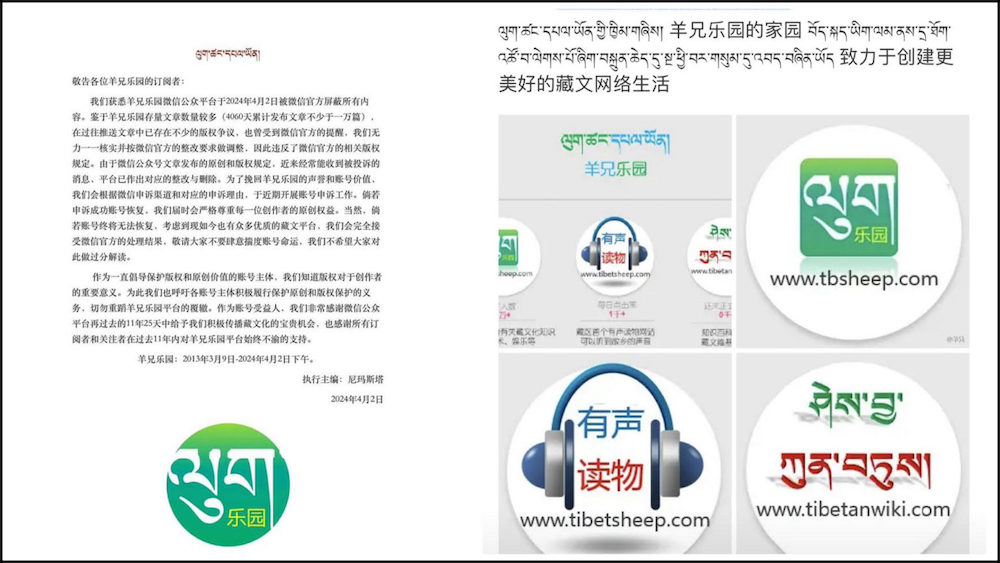By Tsering Dhundup
DHARAMSHALA, April 9: The Chinese government has taken down a widely-read Tibetan-language blog, Luktsang Palyon, also known as ‘Tibet Sheep’ in English. The blog, along with its affiliated WeChat account, was abruptly blocked by authorities on April 2, alleging copyright infringement as reported by RFA.
The administrator of Luktsang Palyon, in a statement, expressed dismay over the government’s action, “The government has completely blocked access to Luktsang Palyon.” Despite filing a formal appeal for the restoration of the blog, the administrator voiced scepticism about any reversal of the decision.
An insider familiar with the matter, speaking on condition of anonymity, echoed concerns about the bleak prospects for reinstatement of the blog. “Even though the administrator has formally requested that authorities reverse the order, there’s little hope that the situation will change,” the individual remarked.
The administrator, in the statement, emphasized the commitment to uphold the rights of writers if Luktsang Palyon is restored. However, they also asserted the platform’s compliance with the government’s decision if the appeal is rejected. Notably, the platform emphasised the importance of copyright protection and the authenticity of the content published on its blog.
Established in March 2013, Luktsang Palyon has been an important platform for discussions on Tibetan language and culture. It has garnered a dedicated readership, serving as a repository for writings by Tibetans both within Tibet and in the diaspora. The blog has curated a diverse array of content, including educational materials, articles, stories, music lyrics, translations, and audio recordings, totalling approximately 10,000 pieces.
This latest crackdown is part of a broader pattern of Chinese authorities tightening control over Tibetan cultural expression. In recent years, the government has targeted various Tibetan-language online platforms. In 2022, the China-based language learning app Talkmate and video-streaming service Bilibili removed Tibetan and Uyghur languages from their platforms following directives from Chinese authorities. Similarly, the creators of GangYang, a popular Tibetan-language short video-sharing app, shut down the service in 2022, citing financial reasons.
Critics say that the closure of Luktsang Palyon demonstrates the ongoing challenges faced by Tibetans in Tibet to preserve their language and cultural heritage amid increasing pressure from Beijing’s assimilation policies.










